Chihiro Ikeda
Japan(currently in Germany)
Intern #190
18 March – 12 June 2025
Instagram: @chihiro_tea.moments
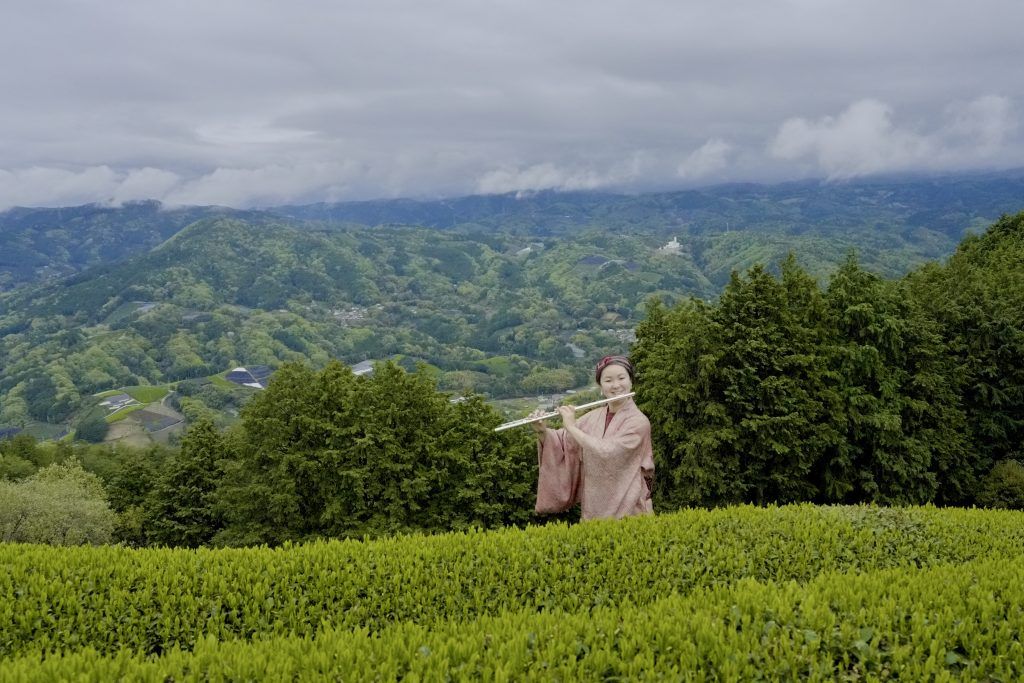
Guten Tag! My name is Chihiro.
I was born and raised in Hirakata City, Osaka, about an hour’s drive from Wazuka Town.
Since 2014, I have been living in Germany and currently in Hamburg, a northern German city which is a sister city of Osaka.
Hamburg is home to a beautiful Japanese garden, where I also work serving tea in the tea house.
Tea is an indispensable part of my daily life. Whether I want to relax, focus on work, after meals, or when meeting with friends, tea is always close by.
Hamburg has a large tea community, and regular tea gatherings and casual tea parties are held. I feel fortunate to have such kind tea friends who support me in my daily life.
I enjoy learning about the unique qualities and characteristics of various kinds of tea. Although I drink many types of tea beyond just Japanese tea, the one that brings me the deepest sense of comfort is 雁金ほうじ茶(Karigane Hōjicha), whose gentle aroma reminds me of childhood memories.
Recently, I’ve grown fond of 実生在来(seed-grown native Zairai) due to its complex flavors, as well as delicately flavored, lightly roasted 浅煎りほうじ茶(Asairi hōjicha).
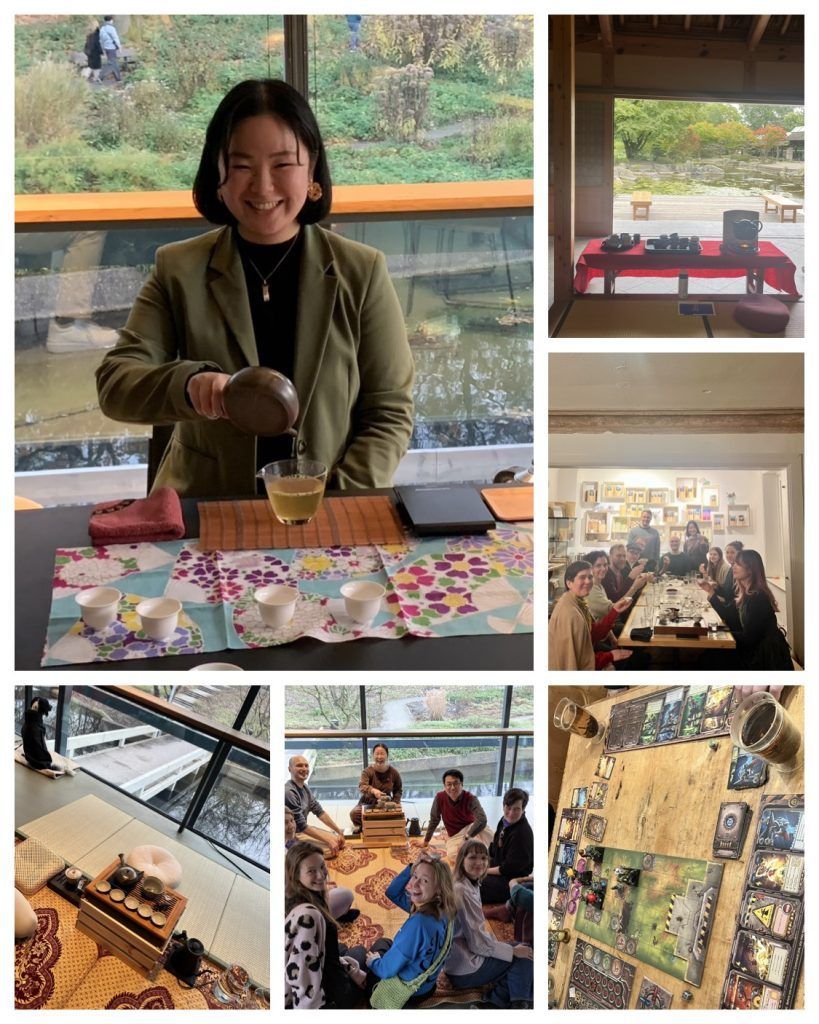
Avant Obubu
People often ask me, “Why did you move to Germany?” At the time, I had a dream of becoming a flute craftsman, so I moved to Germany in 2014. I completed a three-year apprenticeship and worked as a flute craftsman.
However, due to various circumstances, I started thinking about changing careers. I began looking for work where I could make use of my strengths as a Japanese person, share my culture, and engage with people. In flute making, I relied heavily on my five senses—especially my ears to distinguish subtle differences in sound. But I wanted a job where I could also use my other senses. That’s when I found the world of tea, which also brings comfort and healing.
Three years ago, I started working for the German tea brand Paper & Tea. That was when my interest in tea deepened even further. The job allowed me to use my Japanese identity while also matching my sensitivity to taste and aroma and my love for connecting with people. Thanks to my tea enthusiast colleagues, I came to appreciate the beauty and depth of tea. Just thinking about tea every day began to fill me with excitement.
In Germany, Japanese tea is gaining popularity as a luxury item. However, many tea shops purchase from the same major importers, so the tea selections often end up being quite similar.
Amid this landscape, two of my former colleagues started a company called InfiniTea Leaves, which focuses on tea events and tastings. I joined them last year as the third member of the team and work as the Head of Sales Japan. I visit Japanese tea farmers, serve as a translator and interpreter, and help build direct relationships with my Japanese skills. I’m involved in everything from sourcing tea to a variety of tasks related to Japanese tea.
Tea is both my work and my hobby. There are tea festivals in Europe as well, and I was finally able to attend two that I had been dreaming of: the Berlin Tea Festival in November last year and the Prague Tea Festival this February. I encountered a wide variety of teas and learned many new things. It was also a wonderful opportunity to connect with tea lovers not only from Germany, but from across Europe.
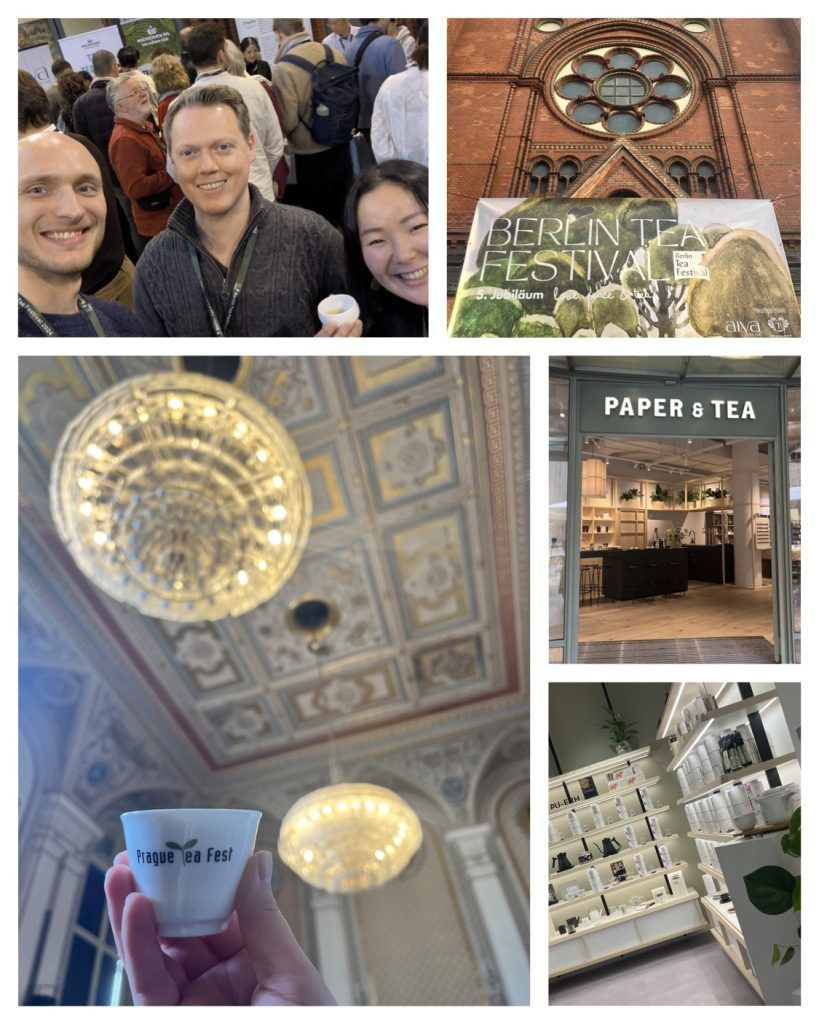
Pourquoi Obubu
I had visited Wazuka before, as I already had connections with some tea farmers there.
I had been interested in Obubu’s internship program for about a year, but taking three months off while continuing my other jobs felt unrealistic at the time. However, after the company I had worked for changed its business direction and many of my colleagues started leaving, I also went through a mentally difficult period.
The day after I decided to hand in my resignation, I happened to see a post on Obubu’s Instagram announcing the recruitment for the next internship slot.
Although I already had a basic knowledge of tea through my work, I wanted to gain more hands-on experience with Japanese tea production and apply this knowledge to my future activities. I felt strongly that I couldn’t miss this opportunity.
Through the internship, I wanted to learn how the teas we drink every day are actually made—by working in the tea fields and factories—and to understand the thoughts and dedication of the producers. I believed this experience would deepen my respect for tea farmers and increase my sense of responsibility in delivering their products to customers.
At the same time, I was also drawn to the opportunity to improve my English and to participate in Obubu’s creative activities, such as tea tours and social media content creation.
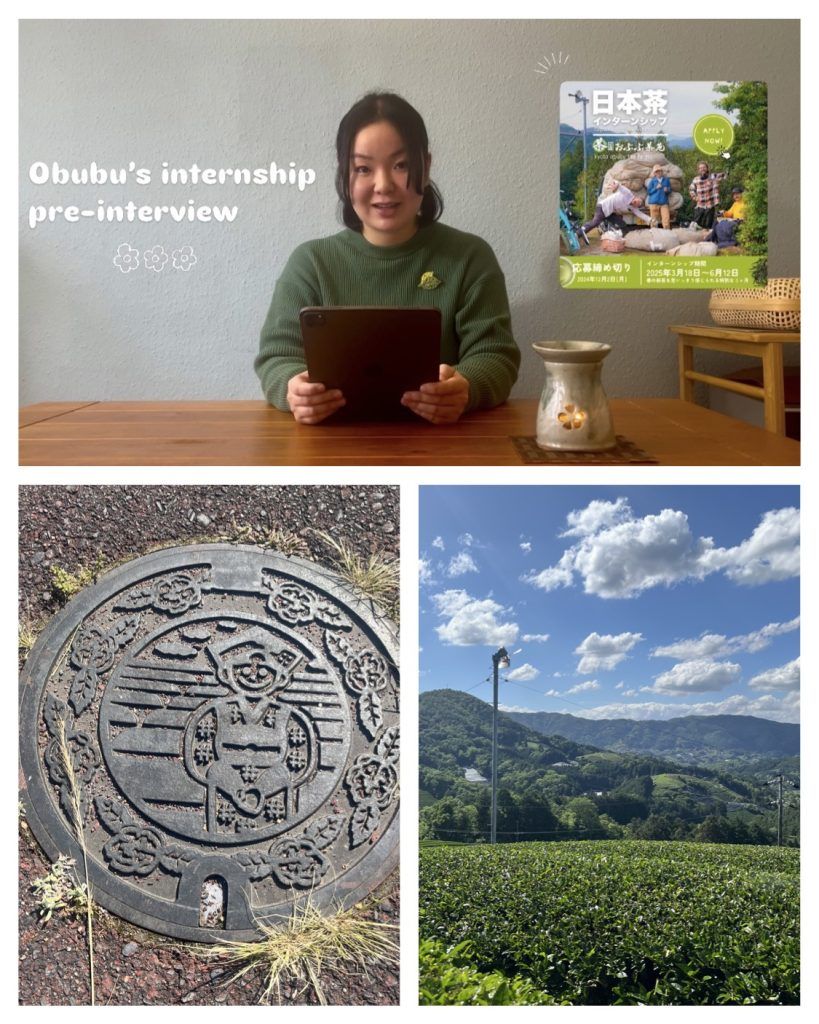
Pendant Obubu
I vividly remember the excitement I felt waiting for the Obubu shuttle bus at Kizu Station. When I saw the tea fields of Wazuka again for the first time in about a year, I felt truly happy thinking, “I get to spend the next three months here.” I also remember how relieved and at peace I felt upon seeing the landscape of tea fields stretching out before me.
Though it went by in the blink of an eye, my three months at Obubu were incredibly rich with experiences and learning. I feel truly lucky to have been involved in the harvest and factory work during the most important time of the shincha (new tea) season.
The first tea tour I joined was as a guest. Despite being mid-March, there was still a light dusting of snow on the mountains near the Monzen area. I was happy to take a commemorative photo with my fellow interns (though not everyone was present). Of course, the entire tour was in English, and although I had some prior knowledge about tea, I found giving presentations and guiding guests through the factory in English to be quite difficult. I clearly remember feeling a bit anxious, wondering, “Am I really going to do this myself?”
Through the tea tours, I had many opportunities to practice presentations and factory explanations in English. I learned a lot by interacting with guests from around the world, and it was rewarding to help them learn more about Japanese tea.
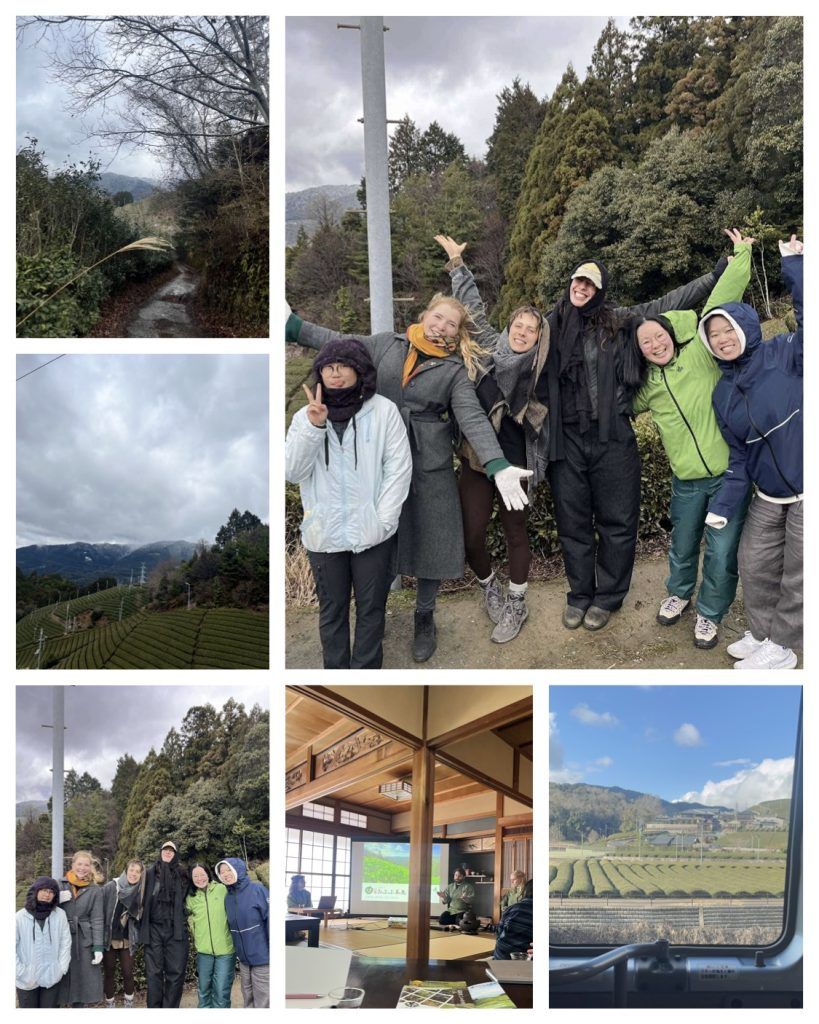
Interns are divided into either the “Intern Selection Team” or the “Social Media Team.” I was placed in the Social Media Team, which I had hoped for, and was responsible for several Instagram posts. One of the most memorable ones was the Instagram reel we created for International Tea Day. I wanted to do something creative, taking advantage of our multinational team, so I invited everyone to join and collaborated with them to create the video.
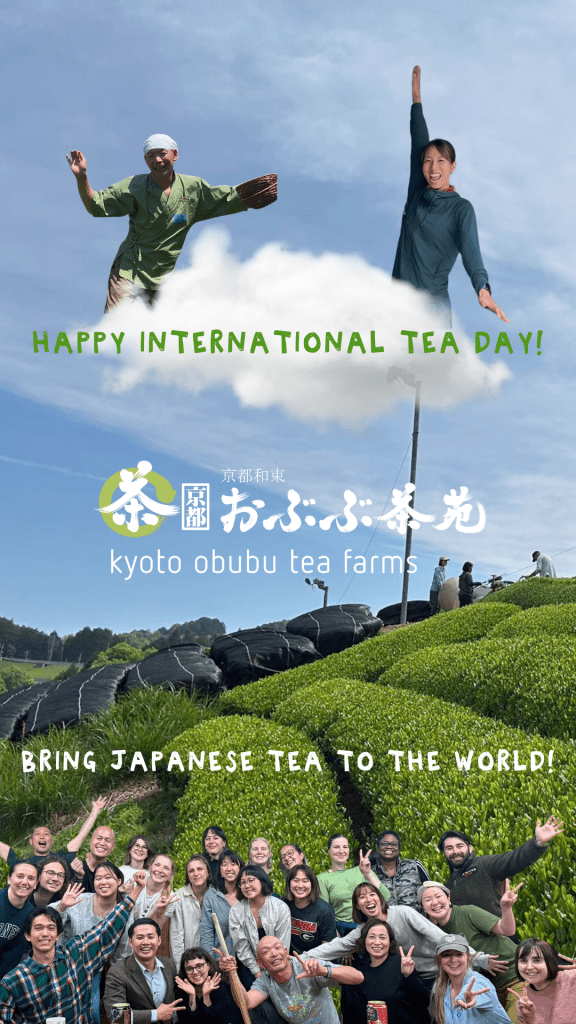
The most unforgettable day during my internship was “八十八夜(Hachijuu-hachiya)” the 88th Night of Spring in the traditional Japanese calendar. This was also Obubu’s first harvest day for the year’s shincha. I was on the late shift, assisting Akky-san, which meant I was able to take part in both the afternoon harvest and the evening factory work. We harvested Yabukita tea leaves from the Shimojima area. While I had some experience trimming tea bushes in preparation for the harvest, this was my first time actually harvesting tea. Watching the tea leaves fill the large harvesting bag was impressive. In the factory, I helped with the steaming process, surrounded by the wonderful aroma of tea. It was my first time seeing a tea factory in operation, and witnessing how tea is actually made was deeply moving. I’ll never forget the taste of the freshly made tea we drank late that night.
For my internship project, I decided to share my daily life as a Japanese intern at Obubu in a way that reflected who I am — combining tea, flute, and language skills. I used music and video to express this connection and posted on Instagram and YouTube in both English and Japanese, collaborating with Obubu’s global and Japanese accounts to reach a wide audience both in Japan and overseas.
As my main project, I worked on a video introducing the traditional Japanese “茶摘みの歌 (tea-picking song)”, which is not well known overseas. I arranged, performed, structured, and edited the video myself. I’m grateful to Joshua, Mia, and Katrina for their help with the filming and music.
Before coming to Obubu, I hadn’t had many opportunities to play the flute for about two years and had barely touched my instrument. But at Obubu, when I played in the share house, everyone gathered around, and some even got emotional. It made me incredibly happy to be able to perform in the tea fields and at tea-picking events.
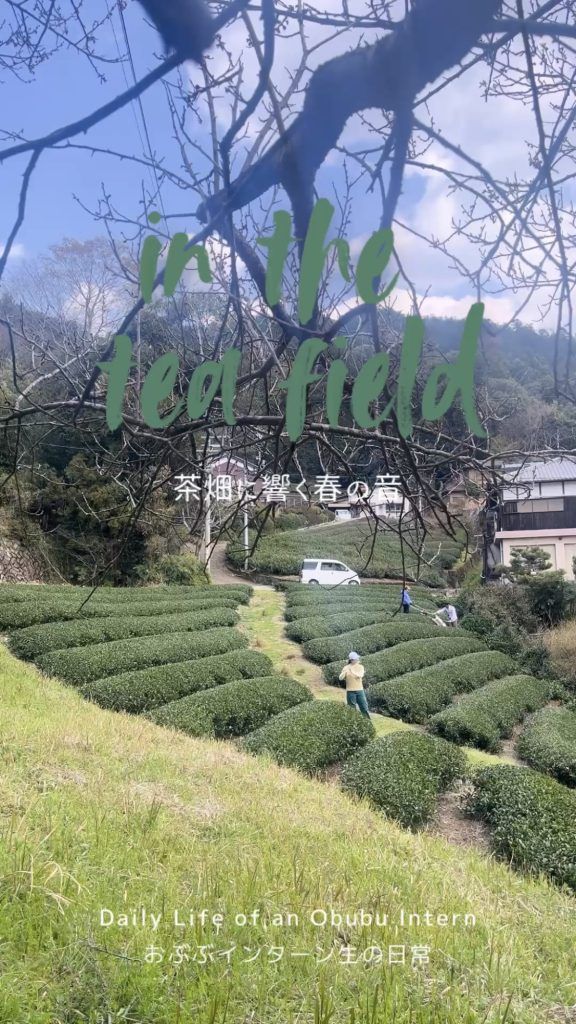
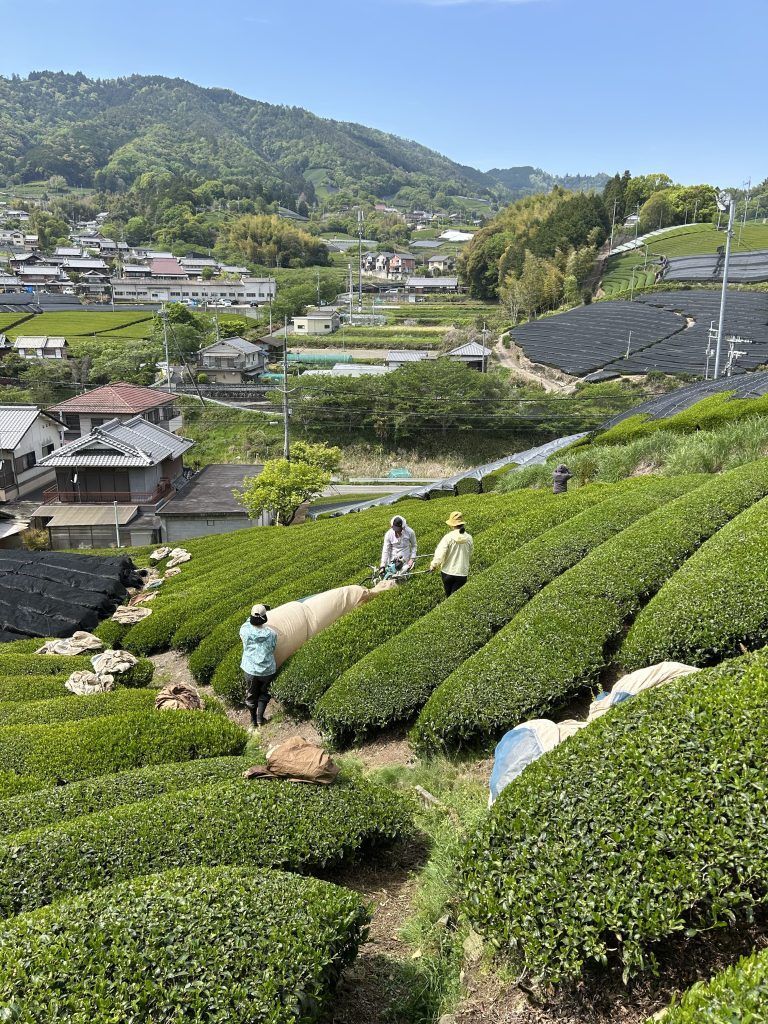
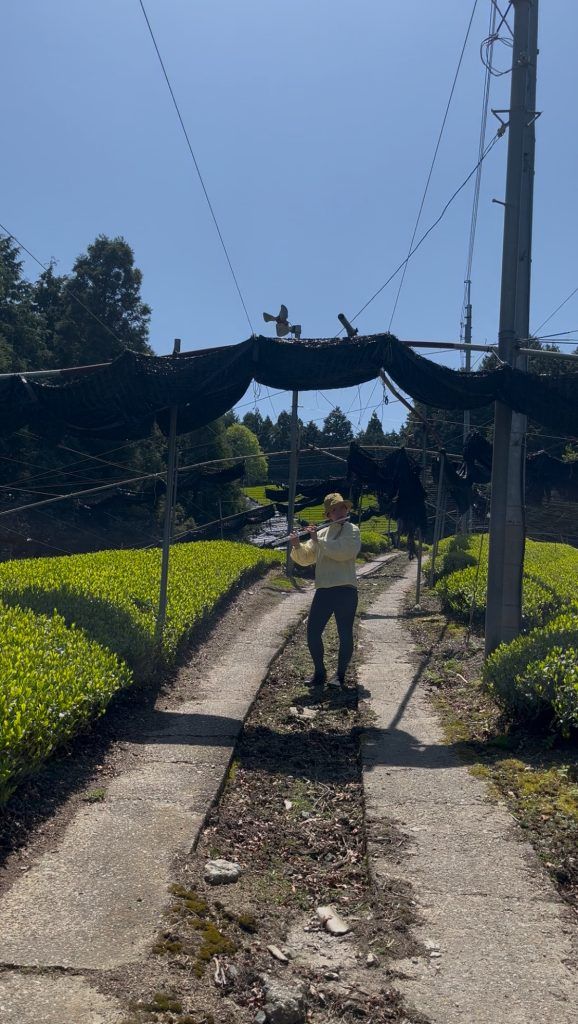
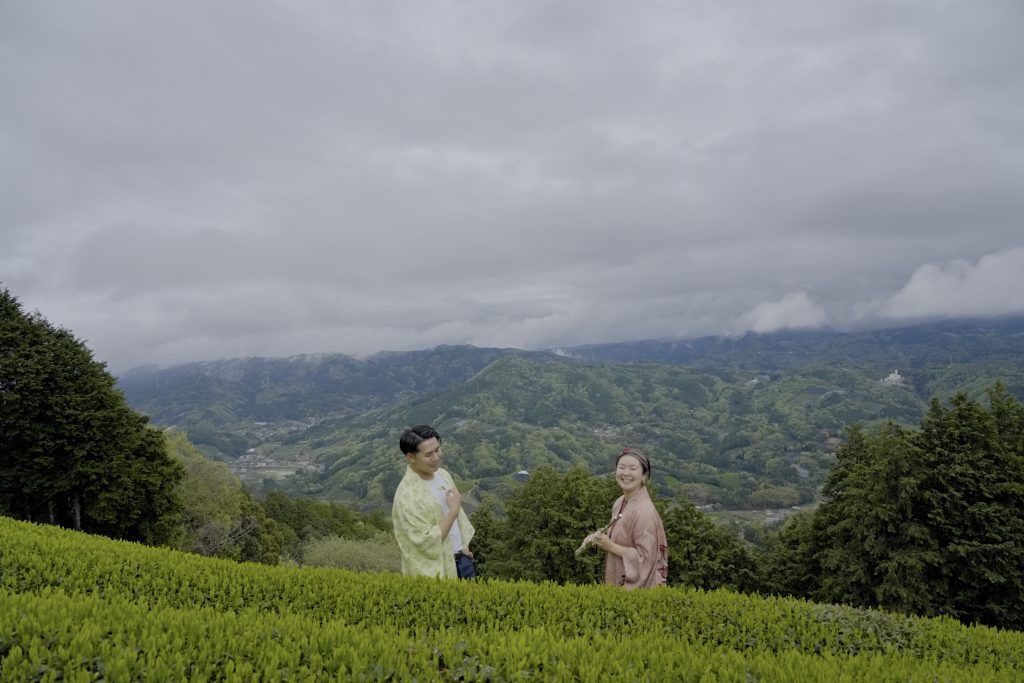
I also had the honor of holding a collaborative event at 桶力茶店(Okeriki Chaten), a newly opened Hojicha specialty shop in Wazuka in April. I hit it off with the owner, and we organized the shop’s first event together: a tea and flute session where people could enjoy tea on the Engawa (Japanese traditionell veranda) while listening to live flute music. It was a special moment that deepened my connection with both the Obubu team and the local community.
As my graduation project for the internship, I created a Japanese interview video with Marie, a previous intern and current Obubu Ambassador who returned to volunteer at Obubu. Despite our busy schedules, staying up late to finish the editing has become a memorable part of the experience. There are still only a few Japanese interns, but I hope this video reaches someone who might be curious about the internship and inspires them to apply.

Although Wazuka has a population of fewer than 3,500 people, Obubu is an incredibly international environment, and being immersed in English every day was a valuable experience. Compared to German, I often found it difficult to express my thoughts smoothly in English, but we helped each other—especially when others were struggling with Japanese—and built strong relationships. Obubu has three share houses: the “Obubu House,” “Hojicha House,” and “Kyobancha House.” I lived in the Hojicha House, and the members there quickly became like family to me. We shared every moment from “good morning” to “good night,” and their presence was a constant emotional support.
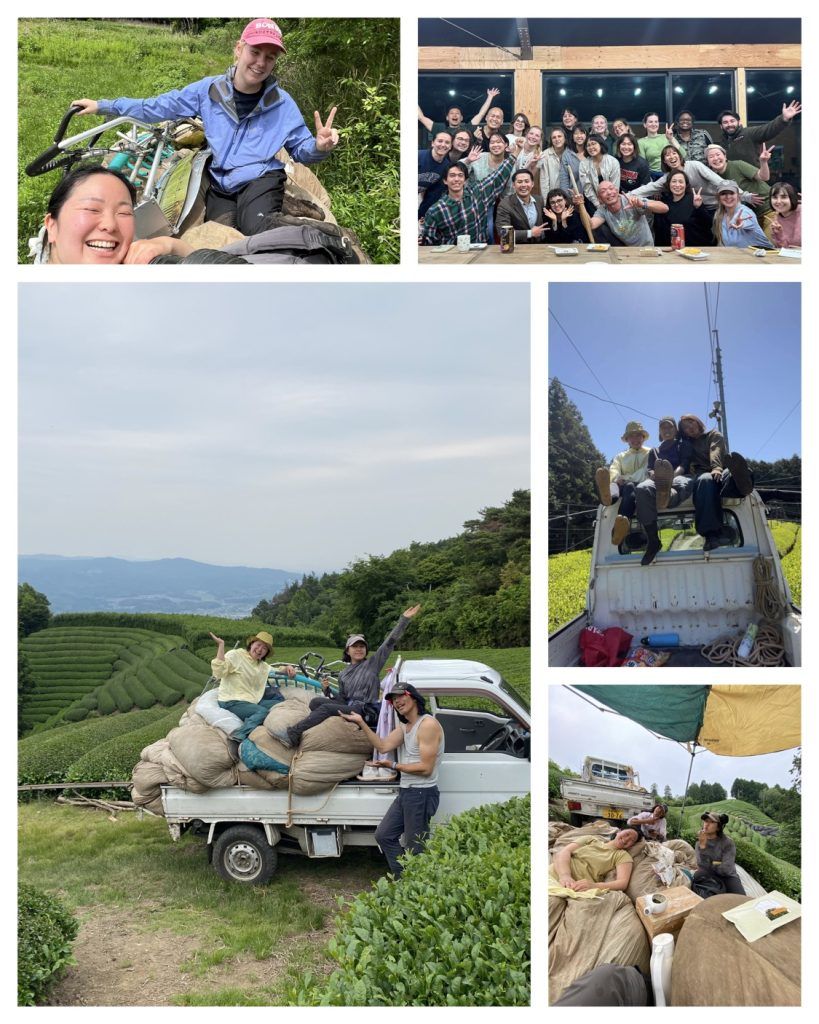
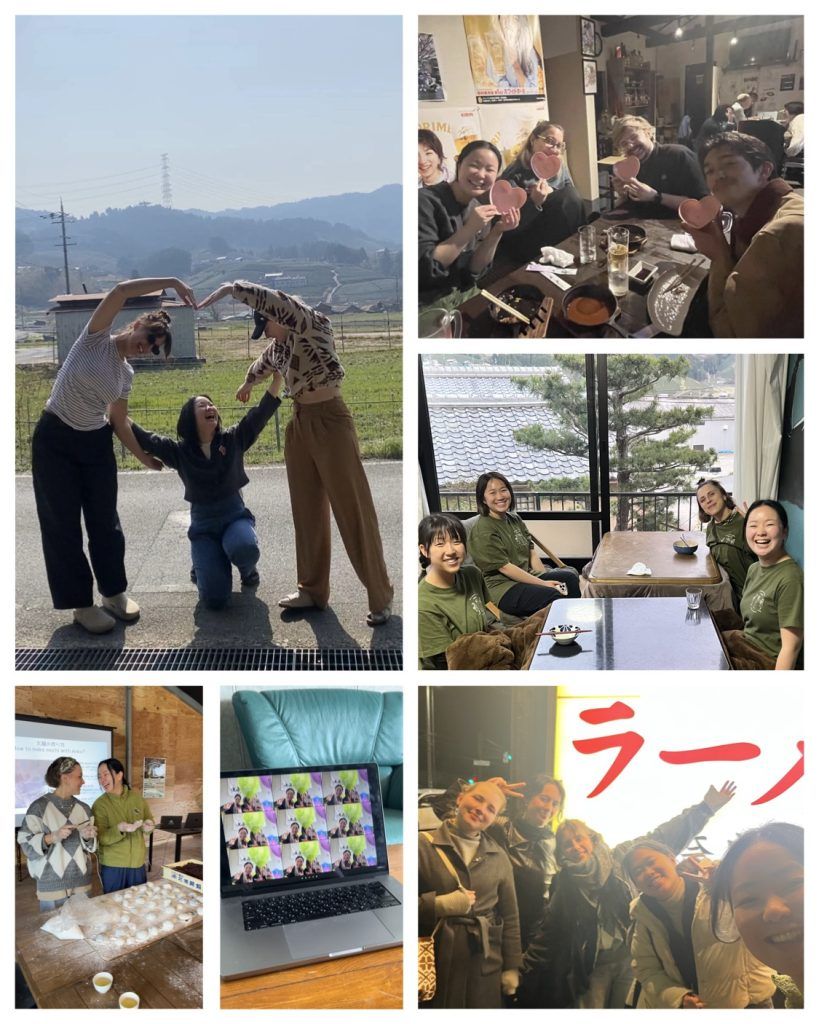
After work, we attended our weekly sencha-do lessons. On our days off, we traveled together to Ujitawara, the birthplace of sencha, visited tencha farmers in Uji, explored the Pottery Market in Shigaraki, and checked out various tea festivals and tea shops, among many other places. We made the most of our free time. Now that the internship has ended, I already miss everyone at Obubu.
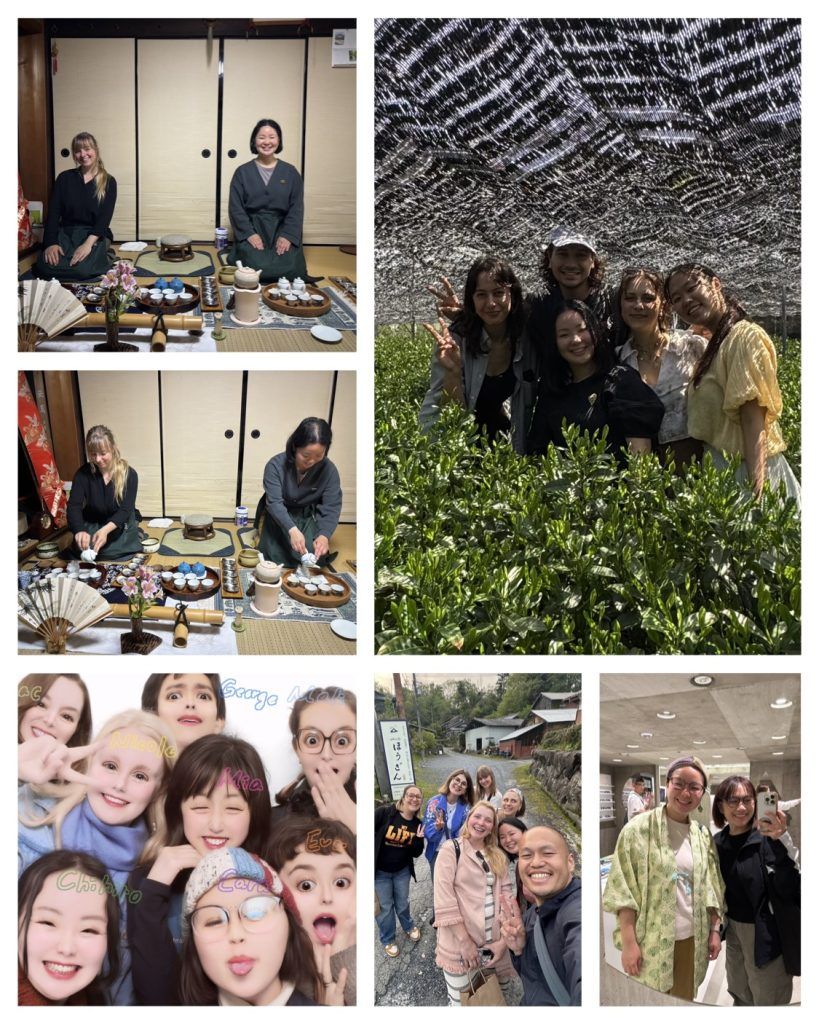
This was my first long stay in Japan in ten years, and as the weather gradually grew warmer, I was able to experience the transitions of the seasons—plum blossoms, cherry blossoms, wisteria, fresh greenery, blue maple leaves, and rice fields filled with water after planting. It was truly a wonderful time.There are several views I love at Obubu—for example, the sight of the factory from the office window, or the mountains and tea fields seen from the café. But the view I love most is from the veranda of the Hojicha House, where we filmed the intern interview video.
It’s a place where you can feel the changing seasons up close. The shifting light throughout the day, the dappled sunlight filtering through the trees, and the sound of leaves rustling in the wind all created a soothing atmosphere that made me feel at peace just being there. In Wazuka, tea fields stretch out in every direction, and because the local farmers take such great care of them, the landscape is always beautiful. The sight of the shaded tea fields, which can only be seen at this time of year, felt especially special and memorable.
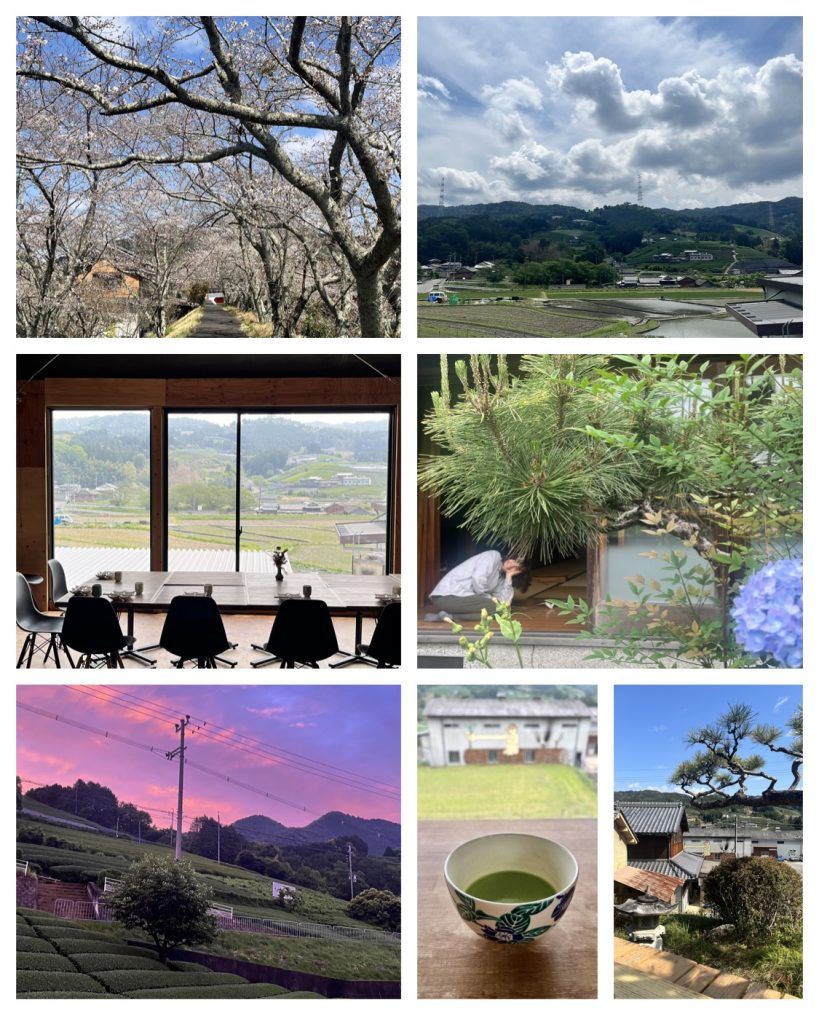
Once I started going out to the fields to help with the work, I began to see the tea farms from a new perspective—thinking things like, “It must be tough to trim such a steep slope,” or “How interesting that there’s direct shading set up right next to the shelf-style shading,” or “So that’s how they shape the fields.”
Noticing these kinds of details made me feel that I had grown in how I observe and understand the tea landscape.
I hope to see Wazuka’s scenery in other seasons as well.
Après Obubu
My long-term goal is to become a bridge between Japan and Germany through tea culture, and to share the charm of Japanese tea—which are still not widely known—with people in Germany.
Although this internship lasted only three months, it gave me the opportunity to work in the tea fields and factory, and to truly feel the passion of the tea farmers. This experience deepened my respect for the people who produce tea. I want to share their heartfelt dedication with more people in Germany.
As a first step, I plan to participate as an exhibitor at the Vienna Tea Festival this autumn, as a member of InfiniTea Leaves. I hope to share the charm of Japanese tea and the heartfelt stories behind each cup with tea lovers across Europe.
I also hope to apply the creative experiences I gained during the internship, as well as the unique ways of expressing myself that I discovered, to my future activities. I’ve recently taken on the role of managing the Instagram account for InfiniTea Leaves, where I currently work, and I’m excited to creatively share more about Japanese tea using what I learned at Obubu.
In the future, I’d also like to host more Japanese tea events and tastings.
And one day, I hope to regularly organize tea × music × healing events using “sound baths”—a dream I’ve held close to my heart for a long time.
